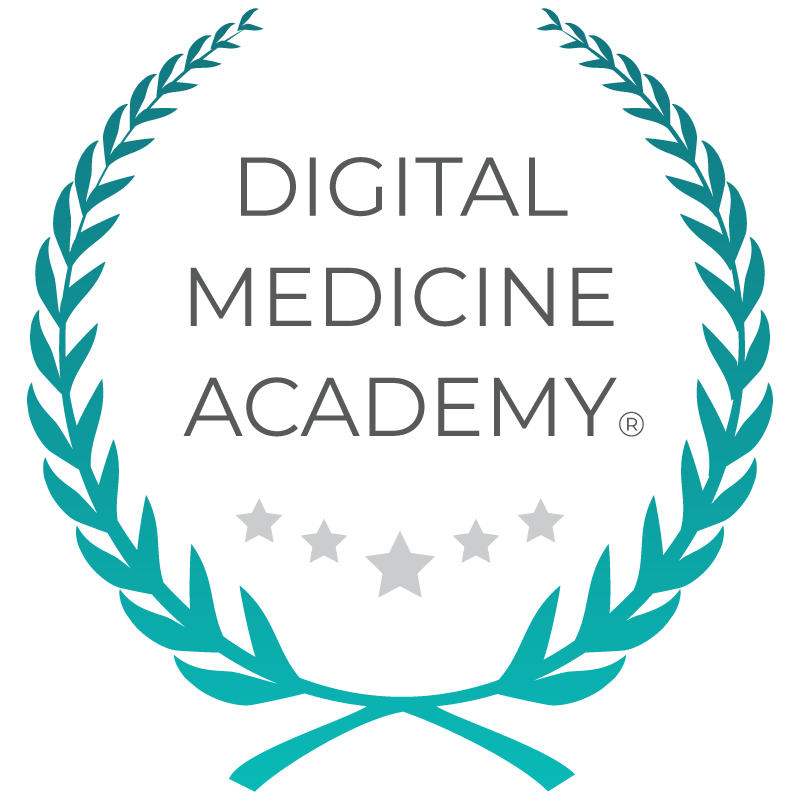
Digital endpoints in action: Clario’s role in shaping the future of clinical trials
“Thanks to the work from DATAcc by DiMe and Tufts, we can now point more specifically to the financial value of digital endpoints—in addition to the scientific evidence.”
Overview:
- Clario is transforming clinical trials by using wearable sensors to deliver more precise, objective, and reliable data used in cutting-edge digital composite scores and machine learning approaches.
- Their recent work with Merck and Oxford showed that digital endpoints can outperform traditional tools, reduce trial size, and accelerate drug development.
- With DATAcc’s research and resources, Clario is helping drive industry-wide adoption and regulatory readiness for digital measures.
Digital endpoints offer more precise, objective insights—but how do you prove their value in a real-world trial?
Clario, through its Precision Motion division and close collaboration with DiMe, is answering that question head-on. By pairing wearable sensors with digital composite scores and machine learning, Clario is transforming how clinical trials are designed and executed alongside its clients.
We spoke with Kristen Sowalsky, PhD, DC, VP of Medical & Scientific Affairs at Clario, to learn more. With over 20 years of experience spanning neuroscience, biomechanics, and exercise physiology, Dr. Sowalsky leads Clario’s efforts to apply wearable sensor technologies in clinical research, capturing digital endpoints that are precise and meaningful to patients and regulators alike.
Translating research into real-world impact
Dr. Sowalsky’s journey with DATAcc by DiMe began shortly after she joined APDM Wearable Technologies. “We aligned with DATAcc’s V3 Framework, which is essential for the field,” she said. When APDM was acquired by ERT (now Clario) in 2020, the collaboration with DATAcc expanded, with the team participating in collaborative projects focused on accelerating industry-wide adoption of digital health technologies.
Clario’s Precision Motion team brings together human movement science, data science, and signal processing experts. Their flagship OpalⓇ sensors and Mobility Lab software—initially developed for academic research—have become key tools in clinical trials, particularly for Parkinson’s disease (PD). The data these tools generate supports the very type of evidence-based, in-clinic and real-world digital measures that DATAcc champions, reinforcing the value of their shared work to advance the field.
Driving adoption with DATAcc by DiMe resources
Findings from DATAcc’s research with Tufts Center for the Study of Drug Development and industry leaders in 2024 underscored a key message: digital endpoints deliver business value.
Dr. Sowalsky called the work “a fantastic point of reference when working with clients.” It helps her make the case for adopting digital endpoints by showing they can reduce trial duration, size, and costs, helping effective therapies reach patients faster and improving ROI.
“At Clario, our priority is communicating the latest information with clients,” she said. “Thanks to the work from DATAcc by DiMe and Tufts, we can now point more specifically to the financial value of digital endpoints—in addition to the scientific evidence.”
Clario also embraces DATAcc’s Building the Business Case for Digital Endpoints resources, which offer a standardized, evidence-based framework to accelerate adoption. These tools highlight value drivers, demonstrate ROI, and provide the data needed to improve both patient outcomes and the drug development process.
“These resources enable a go-to standardized source to broaden and accelerate adoption of digital health technologies,” Dr. Sowalsky said. With this framework, Clario helps clients evaluate when and how to incorporate digital endpoints in their trials.
Proving the power of digital measures
While frameworks and strategy are critical to adoption, digital outcomes drive momentum. A recent collaborative publication by Merck and the University of Oxford is a big win for digital measures and a model for clinical and academic collaboration. Using Clario’s Opal sensors and a machine learning-based framework, the study introduced a composite digital measure that outperformed conventional tools like the MDS-UPDRS Part III, improving sensitivity and reducing variability in tracking PD progression. This work is a powerful example of what’s possible when scientific rigor meets strategic partnership.
The result? A higher effect size (2.14 vs. 1.41), meaning fewer participants are needed to power studies. That’s a game-changer for evaluating disease-modifying therapies. Other studies, including OxQuip and WATCH-PD, reinforce the value of digital composites and machine learning, detecting changes that conventional tools sometimes miss or even predicting falls years in advance.
A vision for industry-wide change
Digital movement symptoms are complex and multifactorial, Dr. Sowalsky explained. Because they often progress differently and impact multiple neurological pathways, integrating machine learning with precise digital measures is critical, not just for sensitivity but for capturing the nuance of disease progression across therapeutic areas.
Looking ahead, Clario will continue working with DATAcc and utilizing resources to advance the field. “Developing standards agreed upon across the industry and working together to achieve regulatory endorsement of digital measures is key,” Dr. Sowalsky said.
With new frameworks, proven technology, and a growing body of evidence, Clario is helping reshape how the industry thinks about digital endpoints—ensuring better data, faster trials, and ultimately, better patient outcomes. Their collaboration with DATAcc remains central to this work, providing the shared foundation, tools, and community needed to drive lasting, industry-wide change.
Get involved with DATAcc
DATAcc projects focus on advancing digital health measurements by developing new evidentiary frameworks and measures in a pre-competitive environment. Join a broader group of leaders across the healthcare ecosystem to establish and execute a shared vision of high-quality digital health measurement that is easily accessible and beneficial for everyone. Learn about upcoming projects here.



